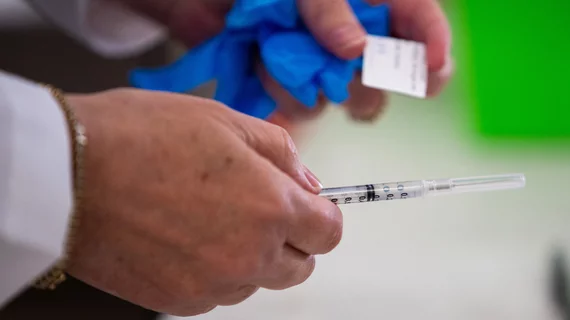COVID-19 vaccines saved 20 million lives
COVID-19 vaccines likely saved approximately 20 million lives, according to a new analysis.
The figure stems from a study published in The Lancet Infectious Diseases that analyzed the impact of COVID-19 vaccines in the first year of vaccination programs. Researchers from Imperial London College looked at COVID-19 mortality and all-cause excess mortality in 185 countries and territories, using a mathematical model to estimate the additional lives lost if no vaccines had ever been distributed.
Researchers found that vaccinations likely prevented 14.4 million deaths in 185 countries and territories between Dec 8, 2020, and Dec 8, 2021. However, the estimate was even higher––19.8 million lives––from COVID-19 averted when researchers used excess deaths as an estimate of the true extent of the pandemic, representing a global reduction of 63% in total deaths during the first year of COVID-19 vaccination. In COVID-19 Vaccines Global Access (COVAX) countries, 41% of preventable deaths were prevented in the first year of COVID-19 vaccination programs.
The findings reveal that COVID-19 vaccinations have “fundamentally altered” the course of the COVID-19 pandemic, according to first author Oliver Watson, PhD, of Imperial London College, et al.
“We evaluated the impact of the first year of COVID-19 vaccination, revealing how vaccinations have more than halved the potential global death toll due to COVID-19, with an estimated 19.8 million deaths from COVID-19 averted as a result of vaccination, based on excess mortality estimates of the impact of the pandemic,” the group wrote. “These reductions were concentrated in high-income countries that relied on their vaccination programs to relax interventions and allow SARS-CoV-2 transmission to increase as they moved into a new stage of the pandemic.”
However, the preventable deaths were mostly reported in high-income countries, while in lower-income countries, particularly countries that did not reach the 20% targets set out by COVAX, vaccine impact was substantially lower; the impact would have been almost doubled if those targets had been reached.
Researchers noted that under-ascertainment of COVID-19 mortality has hindered understanding of the pandemic, which led them to focus on fitting to all-cause excess mortality to provide a more complete description of the pandemic. However, they also noted their findings should be considered in estimating the impact of vaccines in the pandemic, as uncertainty in the true death toll, due to the circulating variants, and the vaccines themselves have complicated efforts to calculate accurate estimations.
Related COVID Content:
COVID-19 vaccines approved for young children
FDA limits use of Johnson & Johnson COVID-19 vaccine over blood clot risk
Vaccine uncertainty discourages vaccine uptake—but disease uncertainty drives mixed behaviors
COVID-19 vaccines prevented 300,000 Medicare patient deaths in 2021

